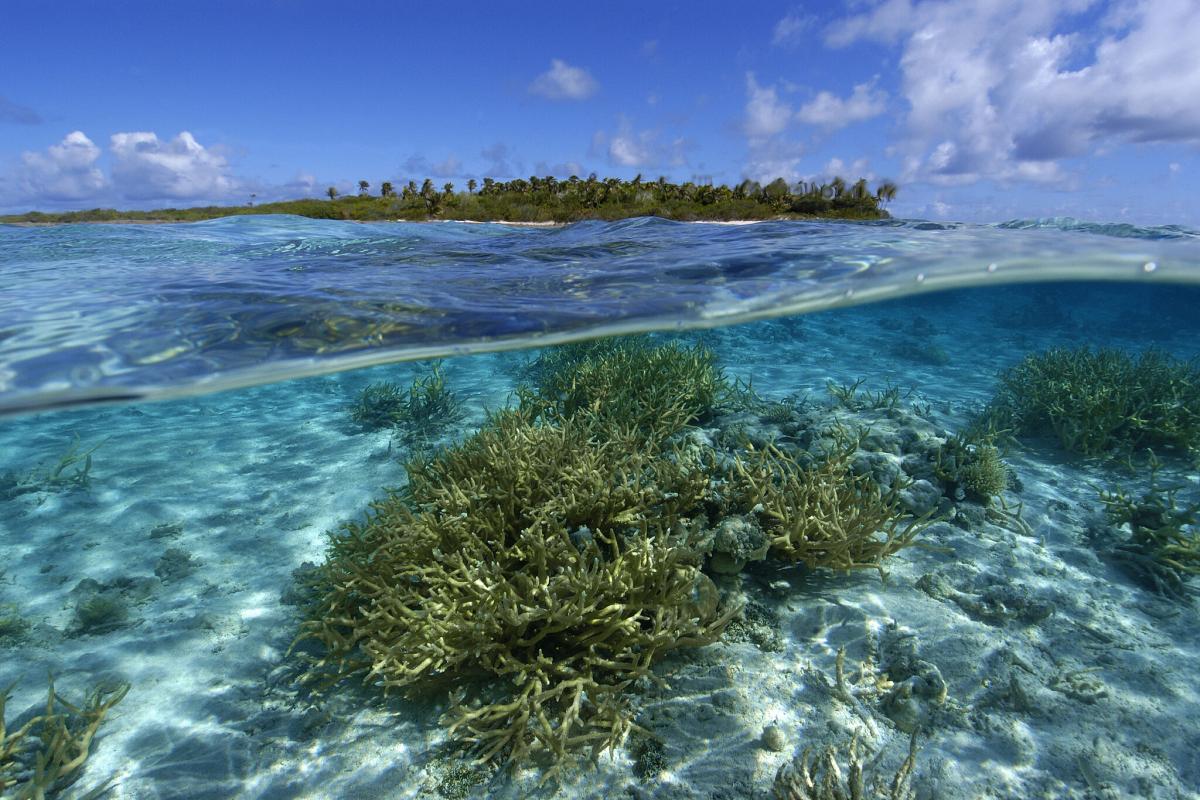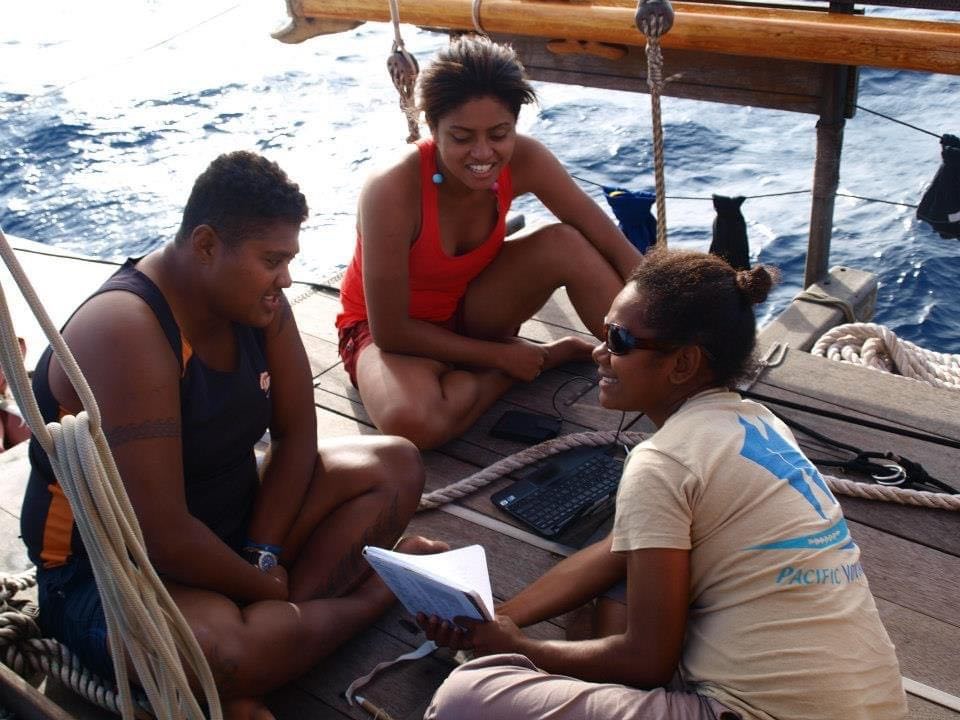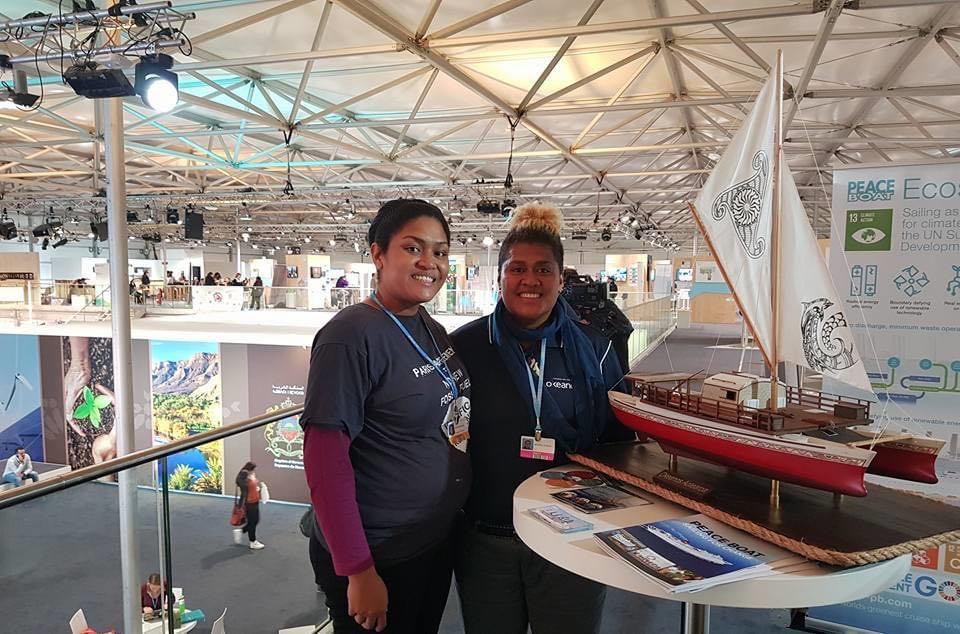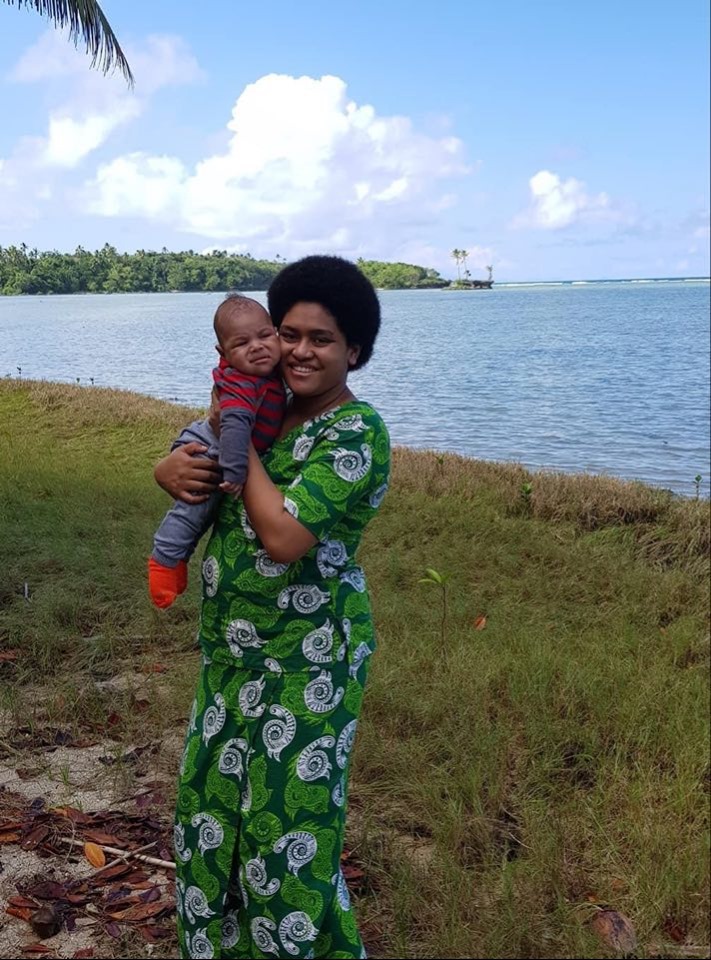My ocean story
By Alisi-Rabukawaqa Nacewa. There is something beautiful and mysterious about the ocean. Some days I sit on the beach and I imagine hearing her sing me a song sung by my ancestors long ago, carried by the winds across her seas, and right back to me to remind me that they once stood here.

Photo: Andre Seale
I was around eight or nine years old, living in Nausori, and loving nothing more than to be in and by the ocean. This meant taking every opportunity to visit my grandparents on Serua Island. By this time, I considered myself a big girl, and would often venture to the bavatu on my own to see who was out there and just play and swim. This particular day, there was a little more excitement than usual because the kids had spotted a number of dadakulaci or white banded sea snakes in the water. The tide was about as high as it can get, but no one had ventured in just yet. As soon as I appeared they started teasing and goading me “the town kid” to get into the water, without hesitation I ran and jumped in and as my head went under I head muffled shrieks and laughter, as soon as I surfaced they asked if I had been bitten and started screaming saying the snakes were venomous. That day I channelled Caroline Pickering and a dolphin the way I swam to the seawall and leapt out of the water and onto the safety of dry land. An important lesson was taught that day about not jumping into a situation just to prove your worth, and having all the facts beforehand. However, the analogy and learning would come much later in life.
Many years later, I found myself jumping into another situation I was not familiar with; to be part of the Te Mana o Te Moana (The Spirit of the Ocean) journey and sail on a traditional double-hulled canoe, the Uto Ni Yalo. The journey began in April 2011 and over the course of two years with hundreds of sailors. Collectively navigating from Aotearoa to Hawai’i the US West Coast, with a historic arrival at San Francisco Golden Gate Bridge in August 2011. The journey home began January 2012 with stops at Cocos Islands, Galapagos, Tahiti, Cook Islands, Samoa, Fiji – at which point I joined the crew and onwards to Vanuatu concluding at the Festival of Pacific Arts in the Solomon Islands in August 2012. It was in that moment, as reached a particularly turbulent Koro Sea when Skipper called the whole crew to have a word of prayer, that I had a flashback to that day at the bavatu on Serua. I had quickly said yes to the opportunity because aside from the romanticized notion I had of the ocean, I really wanted to prove that I could do this. I quietly affirmed that from that day forward I would respect the Ocean, because there was no seawall to swim back too now.
 %3Cp%3EIvanancy%20Vunikura%2C%20Filo%20Serenia%20and%20I%20on%20the%20UNY%20on%20a%20calm%20day%20learning%20a%20chant%2C%202012%3C%2Fp%3E%0A
Photo: Supplied
%3Cp%3EIvanancy%20Vunikura%2C%20Filo%20Serenia%20and%20I%20on%20the%20UNY%20on%20a%20calm%20day%20learning%20a%20chant%2C%202012%3C%2Fp%3E%0A
Photo: Supplied
I, a girl from the island, who loved the ocean in all her beauty and bounty, quickly learnt her power and relentlessness outside the safety of our reefs. However, the endless horizon meant the most beautiful sunrises and sunsets I would ever witness in my life, and having traditional navigators on our journey meant learning about the rising and setting stars. The thrill of encountering beautiful cetaceans, turtles, or getting some fresh tuna was more than enough incentive to get on the deck for four hours on a twelve-hour cycle. In addition, if you were lucky you would have the ocean rocking you to sleep at the end of your watch. Every time I find myself sharing my experience on that journey I feel my heart wanting to burst because it was just so life-changing. However, not as life-changing as bringing life into this world, but that’s a story for another day.
 Photo: Supplied
Photo: Supplied
Today, among other things, I am a wife, a mother of four beautiful children and just as in awe of the ocean as I was the first time I became familiar with her. While I have lovingly described the ocean so far, I am certain we as Pacific Islanders, and users of the ocean space, are keenly aware of ocean threats from overuse, misuse, pollution, damaging activities, competing uses and the impacts of climate change. So, I have (temporarily) hung up my diving gear, and put wondrous adventures on hold as I find myself diving into another path my love for the ocean has taken me involving policies and strategies, long meetings, conferences and consultations. I found that the decision to go this route was very level headed and practical. It was no longer to prove I could, or be brave, and one that was informed. It may not seem as joyful as going to the bavatu to catch up with friends and go for a swim, nor as thrilling as surfing six-foot swells on a traditional double-hulled canoe, but it is still quite exciting.
 Photo: Supplied
Photo: Supplied
I now work as the Project Liaison Officer for IUCN in the Marine Program, which aims to support countries moving to address marine threats like I had mentioned above and build sustainable marine resource management systems. Providing support for countries that are implementing, or interested in implementing, marine spatial planning at various scales also meant learning how to see the ocean vertically. I grew up on her mangroves, her mudflats and reefs. I have sailed her breadth and saw her power. Now I am learning about her depths and the secrets she holds, and we have not even begun to know her.
 Photo: Epeli Nakautoga - IUCN Oceania
Photo: Epeli Nakautoga - IUCN Oceania
What is quite clear though is that her resources are exhaustible. The impacts of polluting her body are now at our doorsteps. In addition, that we need to now more than ever plan wisely how to manage all the uses and bravely decide to do so because its benefits will not be for us, but for generations to come, that will probably not know our names. Nevertheless, maybe our stories carried by the winds over the ocean, will come back one day to remind them of how we as Oceania are connected to her and by her through space and time.
------------------------------
Alisi-Rabukawaqa Nacewa is the Fiji Project Liaison Officer for the Marine Programme
